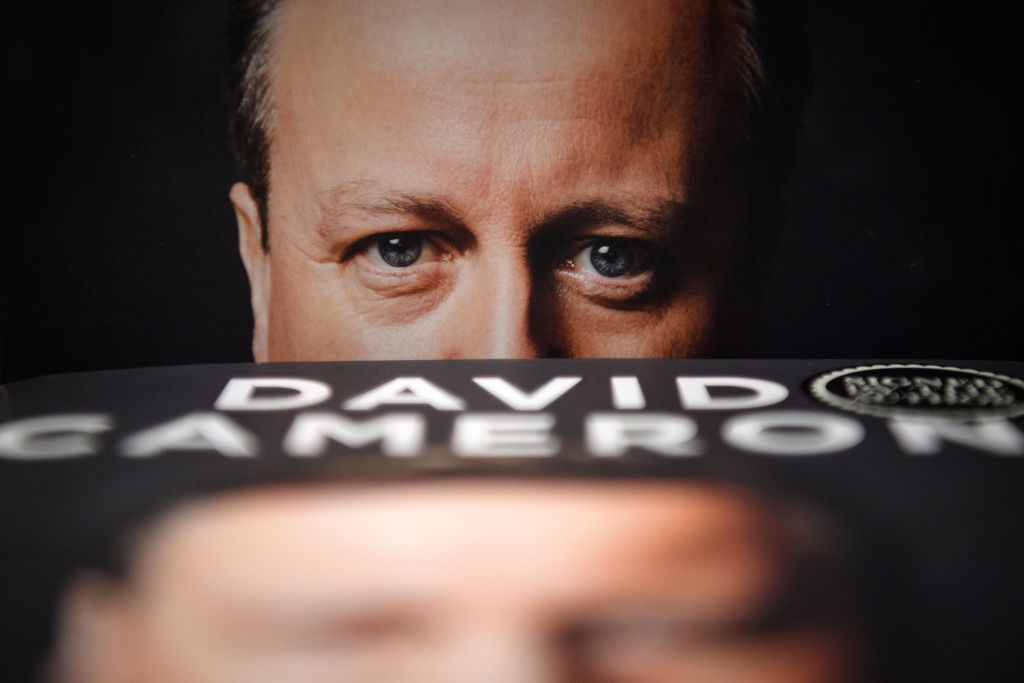David Cameron’s autobiography was supposed to be a chance for the former prime minister to settle scores and have his say on his time in office. But Cameron’s book is also something that he didn’t intend: a convincing case for Brexit. ‘For the Record’ is littered with examples of EU officials and council members undermining UK interests and reneging on promises. Here are 13 times David Cameron’s book makes the case for Brexit:
Jean-Claude Juncker frustrating British interests:
‘Jean-Claude Juncker, the prime minister of Luxembourg, was particularly dismissive of British concerns. As a finance minister, he’d been there at Maastricht when the journey to monetary union began. He’d been there when we refused to join the euro. He always pushed and pushed for more powers for the EU. Often the smallest nations get the biggest hearing, and here was the proof: the leader of a tiny country, with a population the size of Manchester’s, trying to sideline the interests of the biggest financial services exporter in the world.’ (page 334)
José Manuel Barroso’s lack of impartiality
‘Then José Manuel Barroso, the president of the European Commission, chipped in. He was meant to be the keeper of the EU of twenty-seven. Yet when the Germans proposed a treaty change that would benefit the seventeen and potentially disadvantage the others, he didn’t defend the twenty-seven, he attacked one: Britain. I was furious, and I called him afterwards to tell him exactly that.’ (page 334)

Cameron’s feelings towards the EU after the December 2011 meetings
‘I was genuinely angry that this organisation – supposedly governed by the Council of Ministers acting unanimously when it came to issues of treaty change – could behave in this way. I went to bed for an hour at the UK ambassador’s residence before coming back to Justus Lipsius to sign – you couldn’t make it up – another treaty.’ (page 337)
Merkel’s broken promises
‘Merkel was already asking me which of them I wanted for Britain. ‘After everything that happened, you can have whatever you want,’ she said. I asked for the financial services portfolio, for which I’d earmarked Andrew Lansley or Jonathan Hill, the leader of the House of Lords.’
‘Over in Brussels, ‘Whatever you want’ turned into ‘I’ll do my best.’ We spent weeks fighting to get Jonathan Hill into the job, including an unprecedented second European Parliament Committee grilling. I pointed out to Merkel’s team, only partly joking, that the time between a Merkel promise and a Merkel promise being broken was getting shorter – ‘the half-life of a Merkel promise’, I called it.’ (page 518)
Merkel and Sarkozy conspire behind Cameron’s back fearing a UK veto after December 2011 meeting
‘I later heard that Sarkozy and Merkel had met and decided that the risk of a British veto was preferable to my proposed treaty changes, since they could fall back on an intergovernmental treaty outside the European Union structures.’ (page 338)

Cameron’s anger at the EU’s treatment of Britain
‘During 2005 elections, the three main parties promised a referendum on the EU constitution that was never to be. The derided European constitution was rejected by referendums, by several countries, then modestly amended and rebranded as the Lisbon Treaty retaining all the worst elements.’
‘I was genuinely angry about the way our country was being treated’. (page 404)
The EU’s deep divisions
‘It was between north and south, between those in the Eurozone who wanted greater fiscal discipline and a rigorously independent central bank – the Germans, Dutch, Luxembourgers and later the Finns and Estonians – versus those who wanted greater solidarity, like the Italians, Spanish, Portuguese and Greeks.’ (page 327)
Bored in Brussels
‘Sometimes I would sit there and count how many people around the table were asleep. Sarkozy would often be reading the French papers. Once Merkel had to be told to turn the football down on her laptop because she’d forgotten to plug her headphones in.’ (page 156)

The EU’s willingness to bend the rules
‘Anyone who says that the EU is an organisation based on law and not politics has never seen it act under pressure. We were powerless to stop them and to get what we needed.’ (pages 336-37)
Juncker, the unwanted president
‘It was the perfect moment for someone to grasp these threats, adapt to the changes and modernise the organisation. Instead, we were presented with the most federalist, integrationist, Brussels beltway frontrunners: the former Luxembourg prime minister Jean-Claude Juncker, and the European Parliament president Martin Schulz…So we were in agreement: I needed Merkel to stop Juncker, and she needed me to stop Schulz.
‘When it came to the European Parliament elections, the EPP finished with 29 per cent of the seats, compared with the Socialists’ 25 per cent. The EPP claimed that was a mandate for their Spitzenkandidat. ‘I won the elections,’ proclaimed Juncker’
‘‘I think I’m going to have to let you down,’ she said. It wasn’t our relationship that had changed; it was her circumstances. She didn’t quite say, ‘It’s not you, David, it’s me,’ but it felt like being dumped. She said it had become such a major political issue that even her mother had called her to tell her to vote for Juncker.’ (pages 514-16)

Stubborn EU officials
‘If I was finding the leaders hard work, their officials were even worse. To them, I was a dangerous heretic stamping on their sacred texts.’ (page 640)
How the 2011 treaty changes failed to benefit Britain
‘The crucial moment for me was, as I’ve said, when we vetoed a treaty because it failed to give legitimate safeguards to the UK, only to see that treaty implemented, using the institutions of the EU in full.’ (page 401)
Reflecting on power transfers and the single market
‘So the single market in effect required the ending of national vetoes in area after area. It represented a significant transfer of sovereignty from the nation state to the European Community.’ (page 402)







Comments